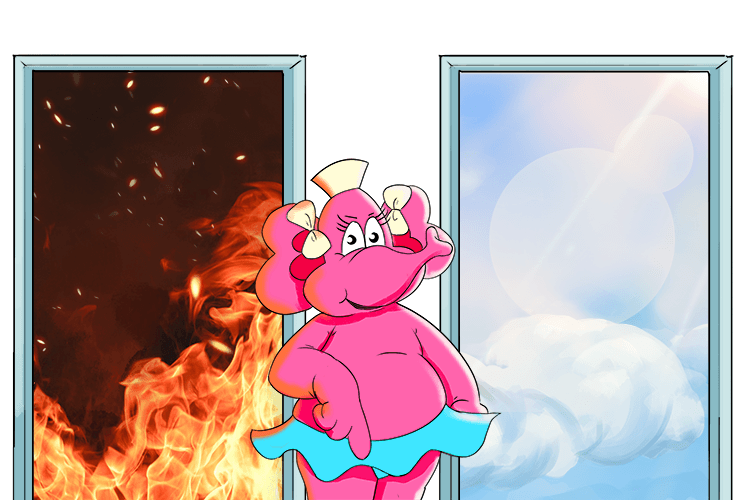Hear it not, Duncan; for it is a knell that summons thee to heaven or to hell
To remember this quote use the following mnemonic.
Do not hear that bell, it did not ring Duncan.

For if you did hear it, it is Nelly the elephant that is summoning you to heaven or hell.

"Hear it not, Duncan; for it is a knell that summons thee to heaven or to hell." Act 2, scene 1, line 64.
Meaning
- Driven by his own ambition and spurred on by his wife, Macbeth has resolved to murder the King of Scotland and seize the throne for himself. King Duncan, who is currently staying as guest a in Macbeth's castle, lies asleep in his chambers. In this tense moment Macbeth waits alone in a deserted room, anticipating the signal from Lady Macbeth - a tolling bell that will indicate that she has successfully drugged Duncan's guards, rendering them unconscious and leaving the vulnerable king defenceless.
- A "knell" refers to the tolling of a bell, often associated with death or a funeral. In this context, the knell symbolizes the impending murder of King Duncan. Macbeth is essentially saying that Duncan should not hear this bell because it marks the moment of his death, which will send him to either heaven or hell.
Exam Advice
- Theme of Guilt and Conscience - Macbeth is acknowledging the gravity of his actions - he is about to commit regicide, a heinous sin, and he knows that Duncan's fate (heaven or hell) will be decided by this act. At the same time, the line reflects Macbeth's own internal conflict and guilt as he is aware of the moral and spiritual consequences of his decision.
- Theme of Religion and Damnation - The mention of heaven or hell reflects the religious beliefs of the time and shows Macbeth fears eternal consequences for his actions.
- Theme of Death of Fate - The funeral bell symbolises that Duncan's fate is sealed. It also shows Macbeth sees himself as an agent of death.
- Theme of Foreboding Atmosphere - This line creates a dark, ominous mood, emphasising the seriousness and horror of the murder.




